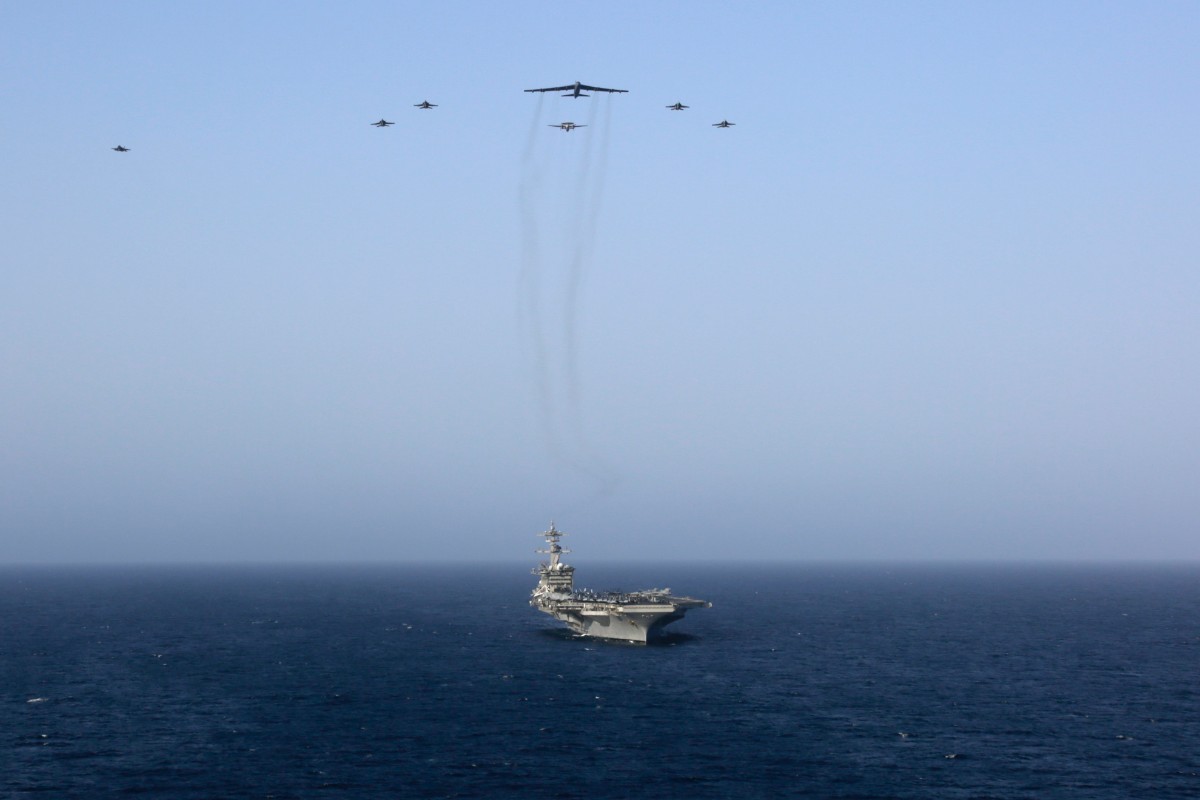 US Navy Photo | MC 1st Class Brian M. Wilbur
US Navy Photo | MC 1st Class Brian M. Wilbur
The Iran Deal: Back from the Brink
Last week, after Iran’s destruction of a US drone over international waters, the US and Iran sat on the brink of war, with US just 10 minutes from conducting a strike on Iran. The US and Iran will likely find themselves back on the precipice of war if tensions continue to increase.
However, recent actions in both Tehran and Washington have severely imperiled the long-term viability of the Iranian nuclear deal. The US withdrawal from the deal and the pressures it is putting on Iran has created a crisis where one did not exist, pushing what remains of the deal to the brink of collapse. The US, through its elimination of sanctions waivers has crippled the Iranian economy, taking away Iran’s main incentive for remaining in the nuclear deal. Iran for its part has indicated that it will increase the enrichment level of its fissile material, in a move that will lower its breakout time to a nuclear weapon.
As the collapse of the deal would likely lead to Iran seeking a nuclear weapon, now is a good time to take a step back and acknowledge two truths. The first is that a nuclear armed Iran would be a game-changer that would severely limit the United States ability to counter its malign influence in the region. The second is that there is no low-cost military solution to prevent Iran from obtaining a nuclear weapon.
Nuclear Weapons: A Game Changer
The Trump administration’s main criticism of the Iran deal is that it failed to address the other activities in which Iran was engaging, such as its ballistic missile program and support for proxies in the region. However, a nuclear-armed Iran would fundamentally constrain the US’s ability to address these very issues. A nuclear armed Iran would restrict the US and its allies from credibly threatening military action as Iran could deter attack. No longer worried about its own survival, Iran could then pour more of its resources into its proxies in the region and increase the amount of influence it wields.
By unilaterally withdrawing from the nuclear deal which successfully curtailed Iran’s ability to nuclearize, and by instituting a campaign of “maximum pressure,” the US is achieving the opposite of its intent and pushing Iran towards a nuclear weapon. Its actions have emboldened hardliners in Iran, who were always skeptical of the deal. This effect has been compounded by recent US actions such as the sanctioning of the Iranian architect of the nuclear deal Iranian Foreign Minister Mohammad Zarif, leaving moderates in Iran with little maneuvering room to push for diplomacy.
The Case against Military Action
Hardliners in the Trump Administration would argue that the best way to stop Iran from obtaining a nuclear weapon is military action. However, limited military strikes would only serve to delay Iran from developing nuclear weapons, would be unable to stop Iran from developing nuclear weapons, and would further incentivize the need for a nuclear deterrent.
Therefore, this leaves the only long-term military solution as regime change. Past U.S. experiences in regime change such as Iraq illustrate the extreme challenges it poses: While removing the regime is comparatively easy, rebuilding a new government from scratch would be extremely difficult and cause numerous problems. The issues the US experienced in Iraq, such as a power vacuum, homegrown resistance, the rise of international terrorist groups would only be exacerbated in Iran, which has a strong national identity and a long history of opposing US interference in its domestic affairs.
The Path Forward
Both Iran and the United States need to acknowledge that military escalation does not serve their own interests. The path forward lies in diplomacy not in war. In the short-term, both the United States and Iran should reverse their recent escalations in the region. The US should withdraw the 2,500 troops that were just deployed and rejoin the Iran Nuclear Deal. Iran should acknowledge its illegal attacks on civilian ships, cease any further action which would impede international shipping and refrain from interfering with US military operations in the region. Lowering of tensions in the short-term will reduce the risk of war breaking out, bringing both the United States and Iran back from the brink of war, and create an opening for diplomacy in the medium and long term.





